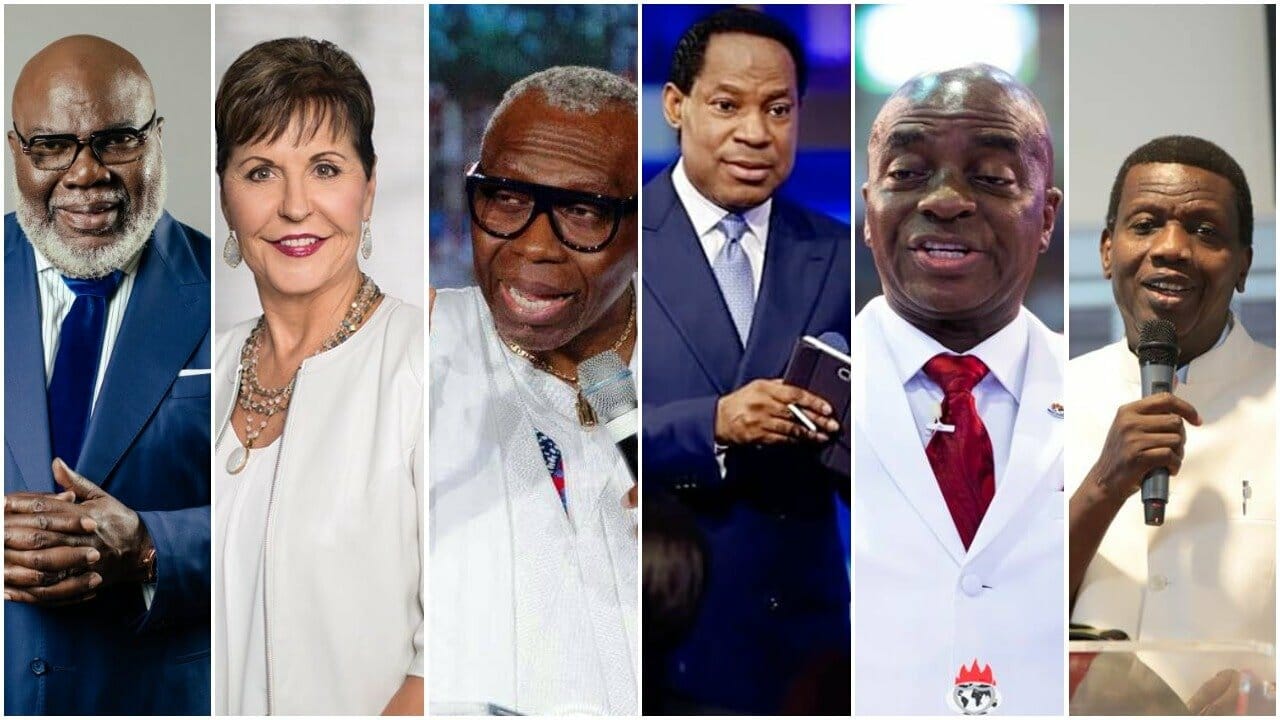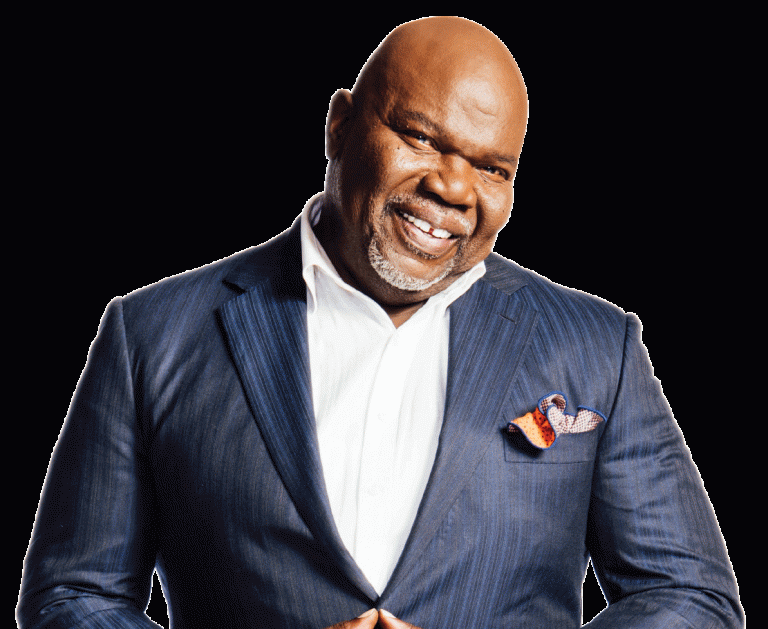Who Are The Top 100 Richest Pastors In The World? Facts & News
Ever wondered if the path to spiritual enlightenment could also lead to extraordinary wealth? The answer, for a select few, appears to be a resounding yes, as evidenced by the emergence of the top $100 richest pastors in the world, figures whose financial success often rivals that of corporate titans.
The phrase "top $100 richest pastors in the world" denotes an exclusive circle of religious leaders who have accumulated substantial wealth through their ministries and diverse ventures. These individuals often preside over megachurches, boasting expansive congregations and wielding considerable influence within their communities and beyond. Their financial portfolios have become subjects of both fascination and scrutiny, prompting widespread discussions about the intersection of faith, fortune, and accountability. The very existence of this elite group compels a deeper examination into the sources and implications of such concentrated wealth within religious contexts.
| E. A. Adeboye | |
|---|---|
| Full Name | Enoch Adejare Adeboye |
| Date of Birth | March 2, 1942 |
| Place of Birth | Ifewara, Osun State, Nigeria |
| Nationality | Nigerian |
| Occupation | General Overseer of the Redeemed Christian Church of God (RCCG) |
| Education |
|
| Ministry Career |
|
| Key Achievements |
|
| Net Worth (Estimated) | Ranges from $39 million to $130 Million (USD) |
| Sources of Income |
|
| Controversies |
|
| Philanthropy |
|
| Website | RCCG Official Website |
The prosperity enjoyed by these pastors is multifaceted, drawing from a diverse range of sources. Foremost among these are the contributions from their congregations, encompassing tithes, offerings, and donations. For megachurches with tens of thousands of members, these contributions can quickly accumulate into substantial sums. In addition, many of these religious leaders are sought-after speakers, commanding significant fees for appearances at conferences, seminars, and other events. Their literary works, often focusing on themes of faith, success, and personal development, generate considerable income through book sales. Smart investments in real estate, stocks, and other ventures further augment their financial portfolios. Some have also launched businesses aligned with their ministries, such as media outlets, educational institutions, or merchandise lines, creating additional revenue streams. This confluence of factors contributes to the considerable wealth attributed to the top echelon of pastors.
- Unlock The Power Of Telegram Channel Links The Complete Guide
- Who Is Sabrina Carpenters Dad Discover David Carpenters Story
The concentration of wealth within this segment of religious leaders inevitably provokes debate and scrutiny. The role of money in religion has long been a subject of contention, with some critics questioning the compatibility of opulent lifestyles with the principles of humility and service often espoused in religious teachings. Concerns also arise regarding the potential for financial exploitation within faith-based organizations, particularly in cases where followers are pressured to contribute excessively or where financial transparency is lacking. However, proponents of these pastors often argue that their wealth is a testament to their effective leadership, their ability to inspire generosity, and their wise stewardship of resources. They may also point to philanthropic endeavors and community development initiatives as evidence of their commitment to using their wealth for the greater good.
Its crucial to remember that not all pastors are driven by the pursuit of wealth. Many dedicated individuals devote their lives to serving their communities with little or no financial reward, embodying the true spirit of selfless service. However, the phenomenon of the "top $100 richest pastors in the world" offers a compelling lens through which to examine the intricate interplay of religion, wealth, and power in contemporary society. It compels us to consider the ethical responsibilities of religious leaders, the potential for both positive and negative impacts of wealth within religious institutions, and the importance of maintaining transparency and accountability in all financial matters.
The term "top $100 richest pastors in the world" represents more than just a list of wealthy individuals; it encapsulates a complex intersection of faith, finance, and influence. These leaders, often at the helm of massive congregations, wield considerable power that extends far beyond the spiritual realm. Their financial success stems from a variety of sources, including but not limited to, traditional church offerings, lucrative speaking engagements, the sale of books and media, and strategic investments.
- Vegasnzcom Your Guide To New Zealands Top Online Casino
- Ralph Macchios Amazing Story From Karate Kid To Icon Updated
- Influence: These pastors exert considerable influence over their followers, shaping their beliefs, behaviors, and even their political views.
- Wealth: Their accumulated wealth triggers ongoing discussions about the appropriate role of money within religious contexts and the potential for financial impropriety.
- Leadership: They are at the helm of sprawling religious organizations, providing spiritual guidance and direction to vast and diverse congregations.
- Entrepreneurship: Many have demonstrated entrepreneurial acumen, launching successful businesses that complement their pastoral work and generate substantial income.
- Philanthropy: A significant number are involved in philanthropic endeavors, channeling resources towards charitable causes and initiatives aimed at community betterment.
- Controversy: The conspicuous wealth and sometimes extravagant lifestyles of certain pastors have drawn criticism and ignited controversy, raising questions about ethical considerations.
The existence of the "top $100 richest pastors in the world" forces a critical examination of the often-murky relationship between religion, wealth, and power. It begs the question: what is the appropriate role of money in religious institutions, and how can potential financial abuses be prevented? Ultimately, it falls upon individuals to critically assess the motivations and actions of these pastors, discerning whether their wealth aligns with their spiritual pronouncements and the core values of their respective faiths.
The considerable wealth amassed by the top $100 richest pastors in the world often translates directly into significant influence over their followers. This influence manifests in numerous ways, permeating their religious beliefs, moral compass, and everyday practices.
- Doctrinal Authority: As authoritative figures within their religious communities, these pastors possess considerable power to interpret religious texts and doctrines. Their sermons, teachings, and pronouncements shape the beliefs and understanding of their followers, guiding their interpretation of faith.
- Moral Guidance: Pastors often serve as moral arbiters for their congregations, offering guidance on ethical dilemmas and providing frameworks for personal conduct. Their teachings can profoundly influence the moral compass of their followers, shaping their decisions and actions.
- Social Activism: Some pastors actively leverage their influence to promote social activism and community involvement. They may mobilize their congregations to address social injustices, advocate for marginalized groups, or participate in charitable endeavors.
- Political Involvement: In certain instances, pastors may choose to engage in the political sphere, endorsing candidates, advocating for specific policies, or encouraging their followers to participate in the political process. This involvement can have a significant impact on political discourse and outcomes.
The influence wielded by the top $100 richest pastors in the world underscores the intricate relationship between religion, wealth, and power. It raises critical questions about the responsible use of influence and the potential for both positive and negative consequences within society.
The staggering wealth of the top $100 richest pastors in the world has fueled ongoing debates regarding the role of money in religion and the potential for financial exploitation within religious organizations.
- Misuse of Funds: Critics frequently voice concerns that certain pastors may be misusing church funds for personal enrichment or extravagant lifestyles, diverting resources away from essential charitable or religious initiatives.
- Prosperity Gospel: The "prosperity gospel," a doctrine espoused by some pastors, emphasizes material wealth and financial success as indicators of divine favor. Detractors argue that this doctrine can be misleading and prey upon vulnerable individuals seeking financial stability.
- Financial Exploitation: Instances of pastors pressuring followers to make excessive donations or profiting from the sale of religious products and services raise serious concerns about potential financial exploitation within religious communities.
- Accountability and Transparency: The lack of stringent accountability and transparency mechanisms within some religious organizations can create an environment conducive to financial misconduct and abuse.
These debates underscore the multifaceted relationship between religion, wealth, and power. They emphasize the critical importance of ethical conduct, transparency, and rigorous accountability within religious institutions to prevent financial exploitation and safeguard the integrity of faith-based organizations.
The leadership of large and influential religious organizations is a pivotal factor contributing to the accumulation of wealth among the top $100 richest pastors in the world. These leaders command vast followings, providing a solid foundation for their financial success.
Building a Loyal Following: Effective leadership enables pastors to cultivate strong connections with their congregations, fostering loyalty and trust. This loyalty translates into tangible financial support, as followers are more likely to contribute to ministries led by pastors they admire and respect.
Harnessing the Power of Media: Many of these pastors strategically utilize media platforms, including television, radio, and social media, to expand their reach and influence. Through these channels, they promote their ministries, market products and services, and solicit donations, further augmenting their financial resources.
Entrepreneurial Ventures: Some pastors have successfully leveraged their leadership positions to launch profitable business ventures. They may establish for-profit companies offering products or services aligned with their ministries, such as books, music, or religious merchandise, generating additional revenue streams.
Philanthropy and Social Impact: Many of these pastors dedicate a portion of their wealth to supporting philanthropic causes and social impact initiatives. They may establish charitable foundations or donate to organizations that align with their religious beliefs and values, contributing to positive social change.
Understanding the intricate connection between leadership and wealth among the top $100 richest pastors in the world sheds light on the complex interplay of religion, influence, and financial success. It highlights the significance of ethical conduct, transparency, and accountability within religious organizations to ensure that financial resources are managed responsibly and used for the benefit of the community.
Entrepreneurial ventures play a significant role in contributing to the wealth of the top $100 richest pastors in the world. By leveraging their leadership positions and devoted followings, these pastors have established successful businesses that complement their pastoral duties.
- Product and Service Offerings: Many pastors have developed and marketed products and services closely tied to their ministries. These offerings may include books, music, religious merchandise, and online courses, generating substantial revenue streams.
- Conferences and Events: Some pastors organize large-scale conferences and events that attract thousands of attendees. These events often feature a blend of religious teachings, motivational speeches, and networking opportunities, generating significant income through ticket sales and sponsorships.
- Real Estate Investments: A number of pastors have invested in real estate, acquiring properties that can be used for church facilities, rental income, or future development. These investments can provide passive income and contribute to the overall wealth of the pastors.
- Media Ventures: Leveraging their media presence, some pastors have launched television networks, radio stations, and online streaming services. These ventures provide additional revenue streams and enable pastors to broaden their reach and influence beyond their local congregations.
The entrepreneurial pursuits of these pastors highlight the intersection of religion, business, and wealth. It raises questions about the appropriate boundaries between religious and commercial activities and the potential for conflicts of interest. Nonetheless, the entrepreneurial spirit demonstrated by these pastors showcases their ability to adapt to changing circumstances and achieve financial success alongside their pastoral responsibilities.
The philanthropic activities of the top $100 richest pastors in the world are an integral aspect of their public image and overall wealth management strategies.
- Charitable Giving: These pastors often donate substantial amounts to charitable causes, including disaster relief, poverty alleviation, and healthcare initiatives. Such donations can enhance their reputations as compassionate and generous leaders.
- Community Development: Some pastors invest in community development projects, such as affordable housing, education programs, and job training. These initiatives not only benefit the community but also foster goodwill and strengthen the connection between the pastors and their followers.
- Faith-Based Organizations: Many pastors support faith-based organizations that align with their religious beliefs. These organizations may provide social services, disaster relief, or educational opportunities, allowing pastors to extend their reach and impact beyond their immediate congregations.
- Personal Fulfillment: Philanthropy can also provide personal fulfillment for these pastors, as it enables them to make a tangible difference in the world and live out their religious values.
The philanthropic endeavors of the top $100 richest pastors in the world highlight the complex relationship between wealth, religion, and social responsibility. It raises questions about the motivations behind charitable giving, the effectiveness of faith-based organizations in addressing social issues, and the potential impact on the overall distribution of wealth in society.
The opulent lifestyles of some of the top $100 richest pastors in the world have ignited criticism and controversy, raising profound questions about the compatibility of wealth accumulation and religious leadership.
Critics contend that the excessive wealth and extravagant spending habits of these pastors stand in stark contrast to the core tenets of humility, modesty, and selfless service that underpin many religious traditions. They argue that such behavior undermines the credibility of religious leaders and erodes public trust in religious institutions.
Moreover, some critics suggest that the relentless pursuit of wealth and material possessions can divert pastors from their primary responsibilities of providing spiritual guidance and serving the needs of their communities. They maintain that pastors should prioritize the well-being of their congregations over personal enrichment.
The controversy surrounding the wealth of pastors underscores the complex interplay of religion, money, and power. It raises fundamental questions about the role of religious leaders in society and the responsible management of financial resources within religious organizations.
This section addresses frequently asked questions regarding the top $100 richest pastors in the world, providing concise and informative answers.
Question 1: What factors contribute to the wealth of these pastors?
Their wealth typically stems from a combination of factors, including church offerings, speaking fees, book sales, strategic investments, and entrepreneurial ventures.
Question 2: How do these pastors utilize their wealth?
Some allocate their wealth to charitable causes and community development projects, while others invest in businesses or pursue lavish lifestyles.
Question 3: Is it appropriate for pastors to accumulate significant wealth?
Opinions diverge on this issue. Some believe pastors should maintain modest lifestyles, while others view financial success as a sign of divine blessing.
Question 4: What are the potential ethical concerns associated with wealthy pastors?
Concerns include financial mismanagement, conflicts of interest, and the potential for wealth to distract from their spiritual responsibilities.
Question 5: How does the wealth of these pastors influence public perception of religion?
The extravagant lifestyles of certain pastors can erode public trust and engender criticism of religious institutions.
Question 6: What are the primary takeaways from the phenomenon of wealthy pastors?
It underscores the intricate relationship between religion, wealth, and power, and prompts questions about the appropriate role of money within religious organizations.
In essence, the topic of the top $100 richest pastors in the world raises numerous questions and diverse perspectives. Understanding the factors that contribute to their wealth, their utilization of resources, and the ethical considerations involved is essential for informed discussions on this subject.
Moving forward, continued exploration of the role of wealth in religious institutions, its impact on public perception, and potential reforms to ensure transparency and accountability can deepen our understanding of this complex issue.
The investigation into the "top $100 richest pastors in the world" has shed light on the intricate connections between religion, wealth, and power. These pastors have accumulated substantial fortunes through various avenues, including church contributions, speaking engagements, book sales, and business ventures.
While some pastors utilize their wealth to support charitable initiatives and community development, others have faced criticism for extravagant lifestyles that contradict the principles of humility and modesty. The existence of wealthy pastors raises critical questions about the appropriate role of money in religious organizations and the potential for financial impropriety.
Looking ahead, it is essential to promote transparency and accountability within religious institutions to ensure that financial resources are managed responsibly and for the betterment of the community. By fostering ethical conduct and encouraging a balanced perspective on wealth and spirituality, we can reinforce the integrity of religious institutions and uphold the values of compassion, service, and humility.
- Guide To Scam 1992 Vegas Download Is It Possible Year
- Kat Dennings And Israel Unveiling Her Connection Why It Matters

Richest Pastors in the World and Net Worth (2021) Zerofy.ng

Top 20 richest Pastors in the world 2021 Update KFN

Top 20 Richest Pastors In The World 2022 Famous People Today 2021